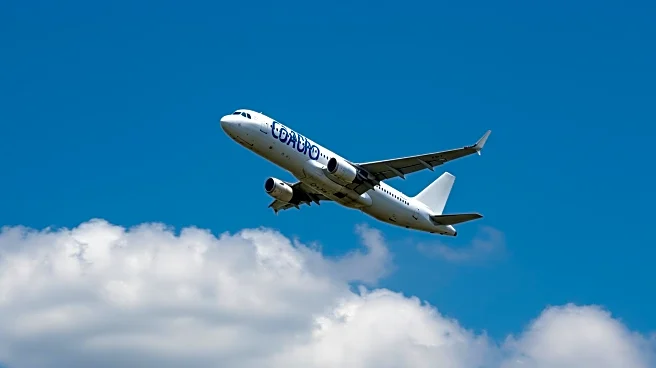What's Happening?
Air Canada is nearing normal operations following a significant disruption caused by a flight attendants' strike. The strike, involving 10,000 flight attendants represented by the Canadian Union of Public Employees, led to the cancellation of over 1,500 domestic and 1,600 international flights. The strike ended with a tentative agreement on a new four-year contract, which includes compensation increases. As of August 21, Air Canada had canceled about 30 flights, marking a substantial improvement. The airline is offering compensation for disrupted flights between August 15-23.
Why It's Important?
The strike's resolution is crucial for Air Canada as it aims to stabilize operations and mitigate financial losses. The disruption affected thousands of passengers and posed challenges in repositioning aircraft and crews. The strike's impact highlights the importance of labor relations in the aviation industry, where operational continuity is vital. The agreement may set a precedent for future negotiations, influencing labor dynamics in the sector. Air Canada's recovery is significant for maintaining its competitive position amid declining demand for flights to the USA.
What's Next?
The new contract awaits approval from CUPE members, which will determine the final resolution of the strike. Air Canada will focus on restoring its full schedule and addressing any residual operational challenges. The airline's financial guidance for 2025 remains uncertain, pending the strike's full impact assessment. Stakeholders will monitor the situation closely, including potential reactions from other airlines facing similar labor issues.









